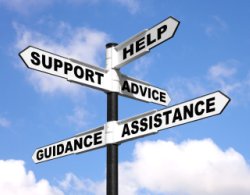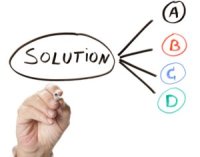When to rely on experts for important decisions
 On virtually a daily basis we are inundated with expert advice that is coming to us from TV, radio, newspapers, emails, and websites. We often find ourselves contending with conflicting recommendations, or worse, new evidence that shows the expert advice we are currently following is wrong. Much of the barrage comes from "shoot from the hip" gurus that make no attempt to provide evidence for their claims.
On virtually a daily basis we are inundated with expert advice that is coming to us from TV, radio, newspapers, emails, and websites. We often find ourselves contending with conflicting recommendations, or worse, new evidence that shows the expert advice we are currently following is wrong. Much of the barrage comes from "shoot from the hip" gurus that make no attempt to provide evidence for their claims.
Should we trust the experts?
The quick, and not very useful answer, is "it depends." On the negative side there is evidence gathered by economic, business-management and medical researchers themselves that suggests that much of published research is flawed, overstated, or simply wrong.
What could be causing this? Again, the research offers a number of possible sources that include:
- Some of what experts have been taught is actually incorrect
- Researchers are inclined to falsely show theories are correct
- Inaccurate measurement, suppression of data, and poor analysis
- Poor or even unethical behavior that can include careerism, politics, and sometimes fraud
- Inadequate community scrutiny and self regulation
Statistics "twisting" examples are numerous, and in many cases, experts can be unaware of their own biases. Recommendations can often be the result of outdated assumptions that are no longer valid. A most recent disastrous example is the rule of thumb that property values always go up.
Factors to consider when you choose to rely on experts
 Here are some criteria you can use to help determine when to rely on experts for decisions made on your behalf.
Here are some criteria you can use to help determine when to rely on experts for decisions made on your behalf.
- Needed expertise and/or capability - Expertise is needed for matters outside of your core competencies, or on some occasions, to add temporary personnel for work in your competency. Subject matter experts can also be used to provide an independent or outside view. In the medical field it is common practice to get more than one opinion regarding a recommended course of action.
- Aligned interests and philosophy - Any conflict of interests opens the door for conflicting motivations in decision making.
- Clear decision making and operational processes - Having a clear decision making process ensures there is some rigor in the approach to making choices and addressing change. It should be evidence based. Existence of operational processes suggest higher predictability and reliability, particularly with regards to meeting time and budget constraints.
- Transparency - Rely on experts that will provide the rationale for their decisions. We all have limits on our knowledge, in addition to biases, and experts should be ready to share their areas of concern, challenge, or doubt.
- Verifiable performance record - Do not depend on anecdotal evidence. A few random successes do not establish expertise. Determine the success rate statistics for the expert to ensure a high likelihood of success. Be wary of breakthrough findings that often turn out to be invalid. Look for recent accomplishments and references.
- Clear cost or fee structure - You shouldn't need an accountant to figure out what things will cost. Reliable experts will seek clarity here to avoid any opportunity for disappointing their customer. There should be clear accountability of what each party needs to provide, and when.
- Availability - Are the experts free when you need them? You are still the customer.
- Compatibility - Experts must work with you and/or your people. Are they collaborative, and do they have styles that will work well with the team? Do their values match your company and/or personal values? Clear communication with planned progress updates should be expected.
- Integrity - Experts should be reliable and honest. If they can't get little things right, it is hard to trust them for the big things. Established trust justifies repeat business, even at higher cost, as likelihood of failure is reduced.
Relying on experts means delegating certain decisions
 When you pay for expert decision making, you should choose what decisions you will want to delegate. Taking a close look at the skills, talents and experience associated with their core competence should enable you to identify the choices that are best entrusted to the professional.
When you pay for expert decision making, you should choose what decisions you will want to delegate. Taking a close look at the skills, talents and experience associated with their core competence should enable you to identify the choices that are best entrusted to the professional.
Recognize and know your limitations. Having experts work for you frees you to spend your time where you can best add value. Allowing the professional to make the decisions where they have the knowledge leads to greater productivity. Shared decision making enables you to get what you paid for, better results at a lower overall cost.
This doesn't let you off the hook. You should expect to be clearly informed of performance progress on a regular basis. Having used criteria for choosing the expert (such as the list included above), your role now moves to monitoring progress against those factors that led to your choice of the professional. If you start to see failure to meet minimum requirements, you should be prepared to make a new decision.

